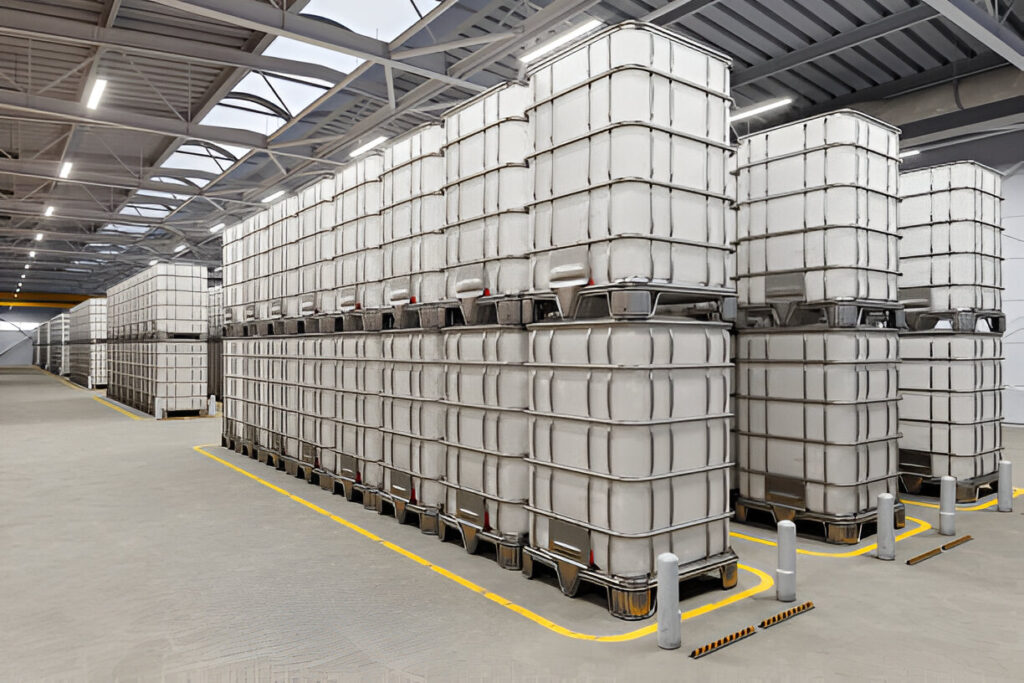Intermediate Bulk Containers (IBCs), commonly known as IBC tanks, are a pivotal innovation in the storage and transportation of liquids and solids. These containers offer an efficient and cost-effective solution for a wide range of industries, including chemicals, food and beverage, pharmaceuticals, and agriculture. In this article, we will explore the unique features of IBC containers, their applications, and the benefits they provide.
What are IBC Containers?
IBCs are standardized, reusable containers designed to hold and transport bulk liquids and solids. Typically made from durable materials like polyethylene or metal, these containers come in various sizes, with the most common capacity being 1,000 liters (approximately 264 gallons). The design of IBC tanks allows for maximum storage efficiency, with stackable features that save space during transportation and storage.
Key Features of IBC Tanks
- Durability and Strength: IBC containers are engineered to withstand harsh environments and heavy loads. Their robust construction ensures that they can handle the stresses of transportation and storage without compromising the integrity of the contents.
- Ease of Use: IBC tanks are designed for convenience, featuring built-in valves for easy dispensing and filling. The wide openings allow for quick access, making them ideal for rapid operations in industrial settings.
- Reusability: One of the most significant advantages of IBC containers is their reusability. Unlike traditional drums, which are often single-use, IBC tanks can be cleaned and repurposed, reducing waste and minimizing environmental impact.
- Space Efficiency: The stackable design of IBC containers optimizes storage space, making them suitable for operations where space is limited. This feature is particularly beneficial for warehouses and distribution centers.
Applications of IBC Containers
IBCs are utilized in various sectors due to their versatility:
- Chemical Industry: IBC tanks are widely used for storing and transporting chemicals, including hazardous materials. Their robust construction and compatibility with various substances make them a preferred choice in this sector.
- Food and Beverage: In the food industry, IBC containers are used for transporting ingredients like oils, syrups, and sauces. They meet stringent hygiene standards, ensuring that food products remain uncontaminated.
- Pharmaceuticals: IBCs play a crucial role in the pharmaceutical industry, where precise handling of liquids is essential. Their design facilitates safe storage and transport of active pharmaceutical ingredients (APIs) and other sensitive substances.
- Agriculture: Farmers use IBC tanks for storing fertilizers, pesticides, and other agricultural chemicals. Their large capacity helps in bulk storage, allowing for efficient distribution during peak seasons.
Benefits of Using IBC Containers
The adoption of IBC tanks offers numerous benefits to businesses:
- Cost-Effective: IBC containers reduce transportation costs due to their efficient stacking and storage capabilities. Their reusability also minimizes the need for constant repurchase.
- Safety: The sturdy design of IBC containers reduces the risk of leaks and spills, ensuring safer handling of potentially hazardous materials.
- Regulatory Compliance: Many industries face strict regulations regarding the storage and transport of bulk materials. IBCs often meet or exceed these standards, helping businesses remain compliant.
- Environmental Impact: By using IBC tanks, companies can reduce waste associated with single-use containers and promote sustainable practices.
Conclusion
In summary, IBC containers are an essential tool for industries requiring safe, efficient, and cost-effective solutions for bulk storage and transport. Their versatility, durability, and environmental benefits make them a popular choice among businesses worldwide. As industries continue to evolve, the demand for innovative storage solutions like IBC tanks is expected to grow, underscoring their importance in modern supply chain management.
Click the link below to find out more!

